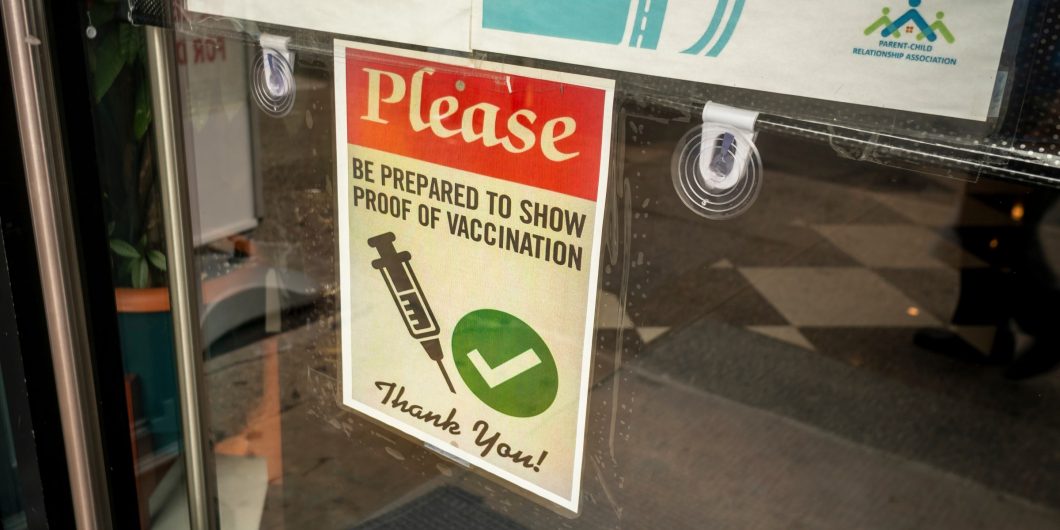The more positively we spin disruption, the more likely we are to induce or prolong it so as to make it a launching point for social change.
Compulsion for Its Own Sake?
In 1853, the Vaccination Act made vaccination against smallpox compulsory for all children in Britain within three months of their birth. After 54 years of public agitation, another act was passed that made it easy for parents to decline such vaccination on behalf of their children, provided only that they claimed truly to believe that there were health reasons why their child should not be vaccinated. The anti-vaccination movement was probably the most persistent of all the social movements of its time, producing mass-circulation publications for decades. Opposition to smallpox vaccination persisted into the 1930s.
Laws that make medical procedures compulsory are bound to be contentious, for whatever their justification, they are an assault on the liberty of the individual, and liberty is an end in itself. As Tocqueville said, anyone who seeks in liberty anything other than liberty itself is destined for despotism. Nevertheless, most people could conceive of a situation in which immunisation against disease ought to be compulsory: and in fact, there have been many situations in which immunisation, or some other form of prophylaxis, has been made compulsory, de facto and de jure, at least for some parts of the population.
Is the Covid pandemic a situation in which immunisation should be made compulsory? As I write this, such compulsion is becoming more fashionable, if I may put it so, among governments, not only for certain sections of the population but for everyone.
Three facts have to be borne in mind: First, the vaccines protect against serious disease, hospitalisation, and death. Second, according to the latest research, they protect little against the spread of the disease, though further research might alter this finding, for science is not a body of fixed doctrine and its findings are provisional. Third, a large proportion of the population is only triflingly at risk of serious disease and death—though again, this could change.
If you put this all together, it argues against compulsion, for the onus is on those who would compel a population to do something to demonstrate the necessity for it. There are those, of course, who would argue that compulsion in such a matter could never be justified, even if Covid were as deadly as the Black Death, which killed a third or more of the population of Europe, rather than a disease that, so far, has raised the overall death rate (by about 10 per cent in countries in Britain, Spain, and Italy, for example), but mainly among the elderly. Let us put aside this extreme position, however.
What could be said in favour of compulsory immunisation in the present circumstances, absent evidence that immunisation reduces spread? There is at least one further argument, namely that the unvaccinated are more likely than the vaccinated to contract severe disease whatever their age. The United States is comparatively well-provided with intensive care beds, but there is still only one such bed for every 4000 of the population. It would therefore require relatively small numbers of severely ill patients (especially as outbreaks are local and not evenly spread) to cause a severe shortage of such beds. At the very least, each extra unvaccinated patient who needs to be treated in intensive care as a consequence of his failure to be vaccinated is imposing the costs of his decision on others.
We bear and spread the cost of much behaviour that is deleterious to health. There seems to me, at least at the moment, no reason for making an exception for or of the unvaccinated.
Singapore has tried to solve the problem of reconciling personal freedom with protecting the public purse by allowing people to refuse vaccination if they so wish on condition that they pay for their treatment for severe Covid disease should it become necessary. There are obvious problems with this scheme.
Ideally, of course, people should bear the consequences of their own decisions, but in practice it is very difficult to arrange our complex world for them to do so. There is, for example, a correlation between low levels of education and income on the one hand and vaccine refusal on the other (the correlation is neither absolute nor proof of cause, of course). Even the cost of a single day’s intensive care is probably—almost certainly—beyond the means of the poorest people to pay; it is sometimes claimed that 60 per cent of Americans, to say nothing of the poorest decile, cannot meet an emergency expense of $1000 without resort to borrowing. I cannot foresee an army of bailiffs trying to squeeze a few thousand dollars’ worth of goods from the poorest homes, which would be like trying to squeeze orange juice from lemons, to pay for their treatment.
In any case, we accept to bear and spread the cost of much behaviour that is deleterious to health. There seems to me, at least at the moment, no reason for making an exception for or of the unvaccinated.
The strongest statistical association with vaccine scepticism or refusal, at least in Britain, is with age, which is flattering to man’s self-conception as the rational animal: the older the age group, the less the scepticism or refusal. This is as it should be because the older the age group, the more liable is a person within it to suffer from severe Covid and be protected therefrom by the vaccine. In the younger age group, the risk of severe disease is tiny, and since, if it is true that the vaccine does not prevent spread of the disease, immunisation is not of assistance in halting the epidemic. Moreover, since it may well be true that natural immunity is stronger than the induced type, it is perfectly rational for young people to decline vaccination.
In summary, I conclude that there is no reason to make vaccination against Covid compulsory, not even for subgroups of the population. To do so risks provoking civil unrest for no good reason. This conclusion is provisional: I do not exclude the possibility that one day compulsory vaccination might be justified, though I do not expect it ever to be so and think we are far from that situation now. Of course, governments love compulsion for its own sake: it lets the population know who is boss.



